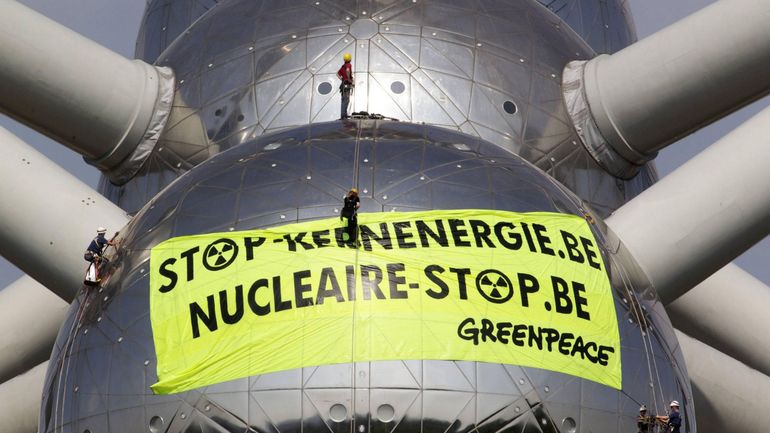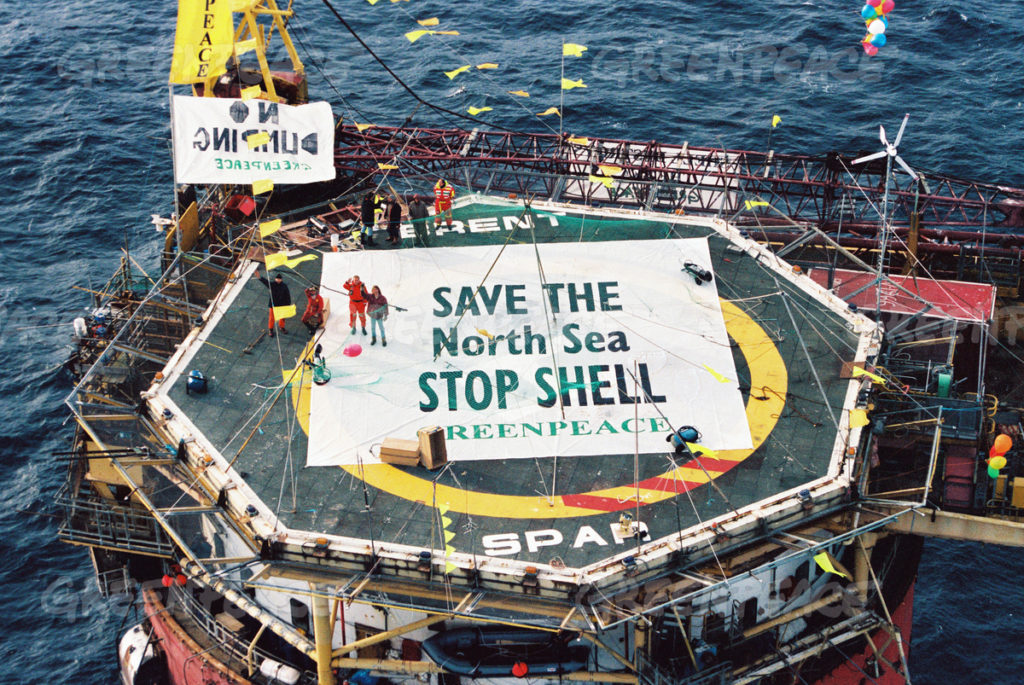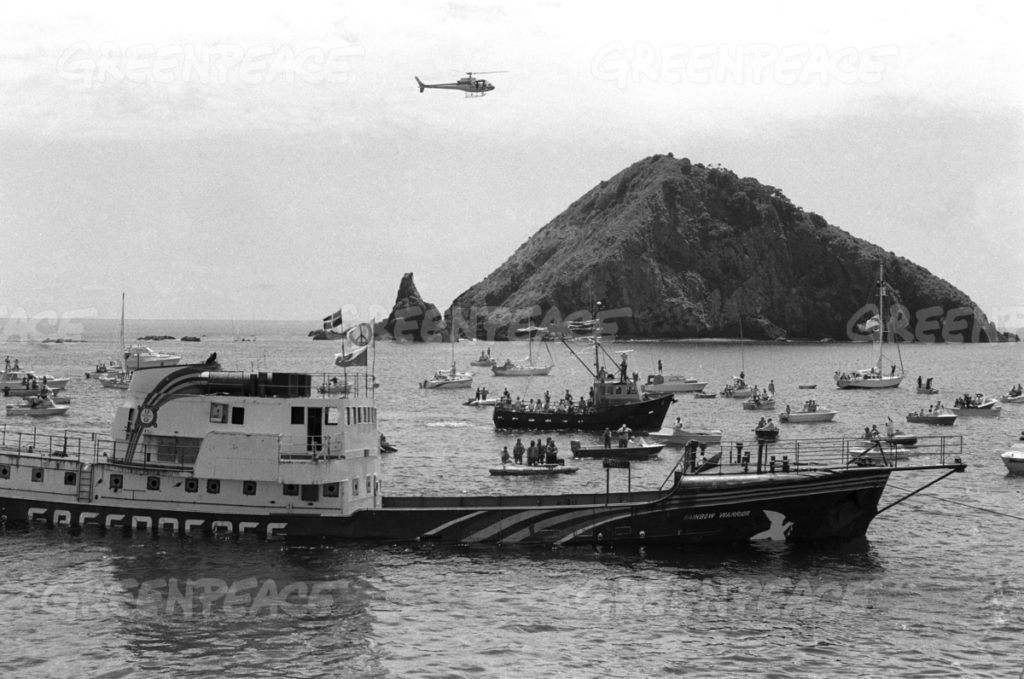Today, 15 September 2021, marks 50 years since Greenpeace - the global environmental organisation - was created. From a small band of activists standing up against US military testing nuclear weapons, the group has expanded to become the foremost climate NGO on the world stage, engaged in climate crises around the world and a distinctive household name.
The organisation has played a pivotal role in drawing attention to crimes against the climate and indigenous communities perpetrated by governments and international corporations. Their direct engagement with local populations and wider society has crystallised public engagement and helped put climate activism on the political agenda.
Victories that can be attributed to the group include compelling the French government to stop nuclear testing in the Pacific, forcing a global ban on ocean driftnets in 1989, and pressuring fashion brands to adopt less toxic production methods.
The fight is far from over
Yet despite the group's undeniable influence on matters of environmental import, it is important to note that past successes are perpetually under threat from new administrations and trends that so often overlook long-term catastrophe in the drive for short-term pleasure and profit.
To this end, Greenpeace Executive Director Jennifer Morgan is restrained in her excitement for the organisation's big day. Far from popping the champagne, Morgan highlights the deteriorating environmental situation around the world and stresses the need - now more than ever - for a cohesive and compelling movement to combat the already dire effects of climate breakdown.
"We are in a climate emergency," Morgan stated in a blunt interview with AFP at the modest Greenpeace HQ in the outskirts of Amsterdam. "All the momentum we have gathered over the past 50 years must be redoubled to create radical and profound change. Time is running out."
Action at Brent Spar oil rig, 1995. © Greenpeace / Peter Thompson
The momentous date for the NGO comes just weeks before the UN Climate Change Conference, where representatives of the world's most powerful and polluting nations will convene to discuss what political and practical actions can be taken in response to the growing threat of climate catastrophe.
Yet despite countless reasons to be pessimistic about the general inability to take decisive and concrete measures to combat climate change, Morgan is far from defeatist and still expounds the same idealism upon which Greenpeace was founded: "Greenpeace started with the idea that individuals could change the world with an idea and some hope... I think that in 50 years, Greenpeace has made some miraculous achievements."
These have been particularly remarkable given that the NGO is in constant contention with powerful institutions and multinational conglomerates. Activists are frequently targeted and sometimes pay the highest price for their efforts. A particularly dark episode in 1985 resulted in the death of Portuguese photographer Fernando Pereira who was aboard the organisation's iconic Rainbow Warrior boat when it was blown up by the French secret service.
Related News
- ‘This is a wake-up call’: One in three tree species worldwide at risk of extinction
- Climate Coalition will take to the streets of Brussels in October
Morgan described the event as a wake-up call as to "how far governments were prepared to go" and, consequently, is "very careful" to protect activists in precarious locations such as Brazil, Indonesia, and China.
But aside from taking direct action on the ground where nature is put in peril by exploitative activity, Greenpeace also takes the fight to courts of justice, leading to landmark rulings that have put an end to many polluting practices, such as blocking new coal power stations in the UK or forcing Shell to cut CO2 emissions by 45%. Morgan affirms that the organisation will increasingly be using judicial muscle to effect climate justice.
A return to normality
In the wake of the pandemic, governments the world around have been eager to boost economies by bringing back tourism and getting the workforce going again - with generally scant regard for the environmental impact this could have. Whilst the pandemic lead to a c.5.6% reduction in global greenhouse gas emissions, the environment has taken a back seat in the rush to resuscitate ailing economies.
"I am profoundly worried by what I see at the moment; governments are acting as if we had returned to the 80s," Morgan deplored in reference to the enthusiasm displayed for recommencing global trade and travel, much to the detriment of biomes in many regions.
Rainbow Warrior sunk off New Zealand, 1987. © Greenpeace / Brian Latham
Certainly, the pervasive attitude among politicians and citizens alike is that we must first deal with the pandemic before we can turn our attention to the environment - as if the two were unlinked entities. Echoing this concern, 220 medical journals recently published an editorial warning that "Despite the legitimate concern about Covid-19, we cannot wait for the end of the pandemic to reduce greenhouse gas emissions."
The sentiment was amplified by WHO Director-General Tedros Adhanom Ghebreyesus, who said in a press release that "The Covid-19 pandemic will end but there is no vaccine for the climate crisis."
To this end, Greenpeace remains focused on the future rather than dwelling on the past. When questioned about the NGO's next 50 years, Morgan struck a jovial tone: "I suppose the aim is that Greenpeace doesn't have to exist any longer!"
But until the world massively changes its habits of consumption, Greenpeace will remain - as German Chancellor Angela Merkel put it - "Persistent, combative, and unshakeable."



